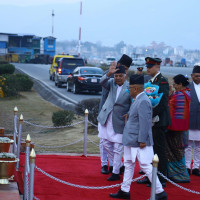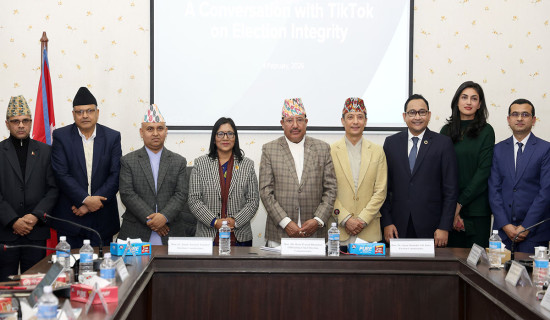- Thursday, 5 February 2026
ADB to provide USD 14 billion to ease food crisis in Asia Pacific
By A Staff Reporter
Kathmandu, Sept 28 : The Asian Development Bank (ADB) Tuesday announced plans to provide at least USD 14 billion over 2022-2025 in a comprehensive programme of support to ease a worsening food crisis in Asia and the Pacific, and improve long-term food security by strengthening food system against the impacts of climate change and biodiversity loss.
The assistance expands ADB’s already significant support for food security in the region, where nearly 1.1 billion people lack healthy diets due to poverty and food prices which have soared to record highs this year, according to a press statement of the ADB.
The funding will be channeled through existing and new projects in sectors including farm inputs, food production and distribution, social protection, irrigation, and water resources management, as well as projects leveraging nature-based solutions.
The ADB will continue to invest in other activities which contribute to food security such as energy transition, transport, access to rural finance, environmental management, health, and education.
“This is a timely and urgently needed response to a crisis that is leaving too many poor families in Asia hungry and in deeper poverty,” said ADB President Masatsugu Asakawa, in remarks at ADB’s 55th Annual Meeting.
“We need to act now, before the impacts of climate change worsen and further erode the region’s hard-won development gains. Our support will be targeted, integrated, and impactful to help vulnerable people, particularly vulnerable women, in the near-term, while bolstering food systems to reduce the impact of emerging and future food security risks.”
The Russian invasion of Ukraine has disrupted supplies of food staples and fertilizer, straining a global food system already weakened by climate change impacts, pandemic-related supply shocks, and unsustainable farming practices. Asia and the Pacific is vulnerable to food shocks, as some of its countries depend on imported staples and fertilizer. Even before the invasion of Ukraine, nutritious food was unaffordable for significant portions of the population in many ADB low-income member countries.
As well as supporting vulnerable people, ADB’s food security assistance will promote open trade, improve smallholder farm production and livelihoods, ease shortages of fertiliser and promote its efficient use or organic alternatives, support investments in food production and distribution, enhance nutrition, and boost climate resilience through integrated and nature-based solutions.
A key focus will be to protect the region’s natural environment from climate change impacts and biodiversity loss, which have degraded soils, freshwater, and marine ecosystems.
Assistance under the programme will start this year and continue through 2025.
It will be drawn from across ADB’s sovereign and private sector operations, and seek to leverage an additional $5 billion in private sector co-financing for food security, said ADB.















